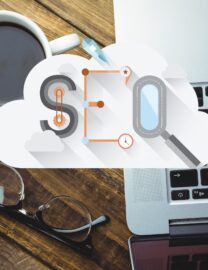In this issue: working remotely, Front-end developer tasks, accessibility in CSS, PHP & much more
Guest editor:

I’m a UX designer. From 2011 in a committed relationship with WordPress. In 2013 I showed up on the first WP conference. Since then I’ve been a speaker on WordCamps & WordUps whenever possible. I develop WP plugins professionally. I have been working remotely for 7 years and have been showing others how not to run wild at home. I own a blog & a podcast about it: https://KatarzynaJanoska.pl
This week’s choice of links mirrors my analytical nature. I enjoy collecting data, drawing my own conclusions, searching for trends and getting inspired.
This year a lot of us ended up forced to work from home without any real contact with the outer world. Such a situation fosters panic: ‘Am I doing this right? Should working from home look like that? Is everyone watching TV series during work hours?’. We are cut off from inspiring conferences and exchanging experiences with the community. It is then not very difficult to lock oneself in the bubble of three favourite news publications entirely by accident.
This week I have a bunch of links dealing with working remotely outside the WP environment. Let’s see how others do it.
A comprehensive report on remote work from March this year. Back then the pandemic was not yet as spread as today, and GitLab splendidly debunked the myth that working remotely equalled digital nomadism under the banner of an exotic palm. Approximately 80% (in words: eighty percent) employees working remotely declared they work from home most often. It’s worth having a look at different statistics from the report – I assure they equally open your eyes.
Perhaps this year you suddenly discovered that you need to remotely manage your team and constantly feel as if you don’t know what you are doing? Others do too. According to Remote-How 93% of managers learnt how to lead their remote team by trial & error. That is how you should probably interpret ‘Learning by doing’ answer, right? That’s a huge relief. At the beginning others did not have a clue what they were doing either.

Yoast announced their cooperation with SEMrush. Its result – it will be easier to find the most accurate keywords.
Due to Covid-19 pandemic the majority of conferences moved online. The organizers bend over backwards to ensure experience closest to the real deal. WordCamp Austin tried VR. Judging from the reaction – it hit the spot.

An engaging article on what the Open Source community can teach to people working from home. Some of the points seem obvious enough, however, it’s hard not to see how many companies have difficulties with asynchronous communication, trust or sense of community.
Back in the day the front-end developer was responsible for HTML, CSS & some basic JS. Their task, you could say, was to turn a PSD file into HTML (pixel for pixel more or less). It has all started to change and more and more duties were assigned to them. Chris Coyier discusses those new responsibilities.
One of better articles on Accessibility in CSS that I had an opportunity to read. It explains many issues – for instance: which units to apply or how to properly deal with animations on a site.
James Farmer, CEO at WPMU DEV (and my boss) speaks on the change that his company underwent. From a company that created a lot of plugins, to a multi-service enterprise (hosting, support and a few premium quality plugins).
Matt from Netifly debated with Matt from Automattic during Jamstack Conf and thenewstack.io aptly summarised their dispute.
Gabriel Glogoški clarifies on how to create modern JS scripts in WordPress. All owing to @wordpress/scripts package.
A useful guide that directs attention to a frequently overlooked part of WordPress database – specifically the autoloaded data. Kinsta showed how to speed up our website thanks to clean up in just that place.
Delicious Brains tips on migrating your local development environment to Windows.
Each year Forbes publishes Cloud 100, that is a list of 100 best cloud services providers. Automattic placed 63rd this year ahead of Digital Ocean, Pipdrive or Grammarly.
Carl Alexander explains how best to ensure the correct type of the variable in older PHP versions.
PHP 8 should see the light of day later this year. Some of us would already like to take advantage of its benefits. The question is, how to preserve backwards compatibility.
